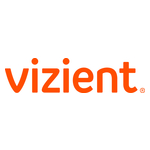 BUSINESS WIRE
BUSINESS WIRE


Pharmacy innovation, advanced analytics and AI will drive success in the coming year
Vizient’s 2025 Trends Report Offers a Strategy and Investment Roadmap for Healthcare Leaders
Media
Donna Ledbetter
(972) 830-6321
donna.ledbetter@vizientinc.com
Leveraging insights from industry experts at Vizient and its subsidiary Kaufman Hall, the company today published its 2025 trends report, “Strategy is (finally) back in the driver’s seat”, providing a roadmap for healthcare leaders for the new year. The report highlights four key trends and offers examples of health systems who are leading in implementing strategies that position them for success in 2025.
This press release features multimedia. View the full release here: https://www.businesswire.com/news/home/20241212666054/en/

Graphic: The Vizient 2025 trends report, “Strategy is (finally) back in the driver’s seat," highlights four key trends and offers examples of health systems who are leading in implementing strategies that position them for success. (Graphic: Business Wire)
1: Accelerate bigger, bolder opportunities for better patient access
According to Vizient’s annual survey of hospital and health system leaders, 52.8% see patient access, throughput and capacity as their top area of focus for 2025. To harness growth opportunities that create patient loyalty, healthcare leaders must shift from transactional growth to patient access strategies that deliver a value-driven experience.
According to Yelena Bouaziz, principal, intelligence at Vizient, “The key to maximizing access and care is to look at your overall lifetime relationship with the patient and prioritize what interactions and populations you should target to create the highest impact and value possible for them — and then steer away from those interactions that fall short.”
Understanding the patterns and preferences that increase patient loyalty will enable health systems to invest in developing access points that prioritize convenience, meet the needs of different segments in an individualized way, encourage engagement and build lasting trust.
2: Fuel success through pharmacy innovation
Outpatient pharmacy spend is growing 52% faster than total outpatient spend. Expanding use of expensive cell and gene therapy drugs — in some instances, single-dose treatments that cure rare diseases — are transforming the care pathway for patients. As the industry evolves, these treatments will often be administered in nonacute settings.
“Health systems with multidisciplinary teams — physician champions, pharmacy leaders and finance teams — working together can more successfully enhance programs and provide equitable patient access to these expensive drug therapies from a systemwide approach,” said Steven Lucio, PharmD, BCPS, senior principal, spend management insights and intelligence, Vizient.
Maximizing the revenue capture of specialty pharmacy and cell and gene therapy by enhancing system efficiencies now can help provider organizations deliver on the future promise of this innovative pipeline.
3: Greenlight advanced analytics and AI investment
Advanced analytics and artificial intelligence (AI) can allow clinicians to work at top of license through augmenting decision-making and patient care. They can more efficiently evaluate a patient’s condition by optimizing the analysis of medical imaging data and synthesizing medical history and family history.
Advanced analytics can also help optimize patient care by summarizing complex electronic health records and identifying care gaps earlier, screening for high risks, reducing unnecessary testing, monitoring remotely and tracking missed appointments and medication refills. While there is broad consensus that clinicians will not be replaced by advanced analytics or AI, those who do use it to augment their work will replace those who do not.
Erik Swanson, senior vice president, data science and analytics, Kaufman Hall notes, “Organizations are often data rich and information poor, and so these tools can reveal important interconnections. They are a sorting mechanism to determine what is most important to focus on, which you can then use to create objectives and action plans around those KPIs.”
4: Map new approaches to Medicare Advantage
Providers have hit many challenges with Medicare Advantage in the past year, including payer contractual yield decreases, restrictive authorizations for care and impacts related to risk adjustment methodology changes. According to a recent Vizient Member Networks survey, Medicare Advantage payer behaviors most costly to healthcare organizations are utilization management, diagnosis related group downgrades and discharge delays.
“Most metrics for Medicare Advantage payers are provider driven. So, whether it's risk adjustment, coding for accurate diagnosis, CMS star ratings improvement or total cost of care management, providers are in the driver’s seat more than ever if they're willing to change their business and care models,” said Joyjit Saha Choudhury, managing director, strategy and business transformation, Kaufman Hall.
The report notes that the long game for healthcare organizations is to develop a business model that includes quality care to foster a continuous, collaborative effort that improves cost structures on both sides.
Health system leaders have difficult decisions to make to compete in the ever-changing healthcare landscape. Strategic planning aimed at embracing patient consumerism, optimizing Medicare Advantage contracts, leaning into pharmacy opportunities, and leveraging the power of advanced analytics and AI will be required for success in 2025.
Read the full 2025 trends report here.
About Vizient, Inc.
Vizient, Inc., the nation’s largest provider-driven healthcare performance improvement company, serves more than 65% of the nation’s acute care providers, including 97% of the nation’s academic medical centers, and more than 35% of the non-acute market. The Vizient contract portfolio represents $140 billion in annual purchasing volume enabling the delivery of cost-effective, high-value care. With its acquisition of Kaufman Hall in 2024, Vizient expanded its advisory services to help providers achieve financial, strategic, clinical and operational excellence. Headquartered in Irving, Texas, Vizient has offices throughout the United States. Learn more at www.vizientinc.com.
View source version on businesswire.com: https://www.businesswire.com/news/home/20241212666054/en/


